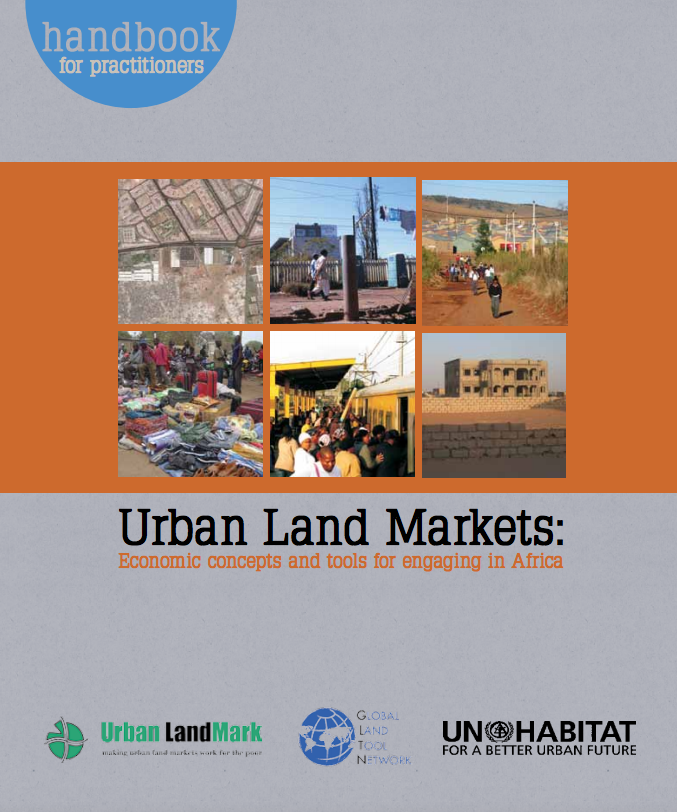Urban Land Markets: Economic concepts and tools for engaging in Africa
This Handbook introduces key economic and related concepts explaining the functioning of urban land markets. You will find in this Handbook tools for engaging in a critical analysis of conventional economics, particularly in the understanding of how African urban land markets work. Of great importance is the understanding of how land use, supply and demand unfold in African context. It provides a basis for strengthening urban policy in ways that enable poorer people in African cities to access well-located living and work spaces.


